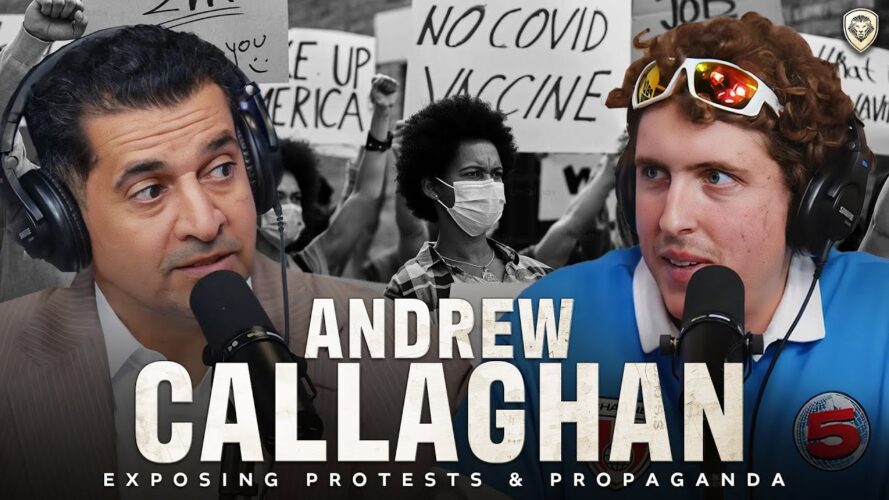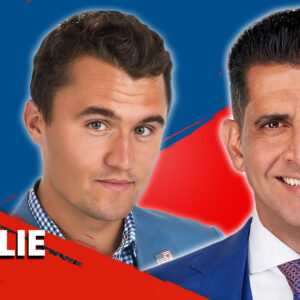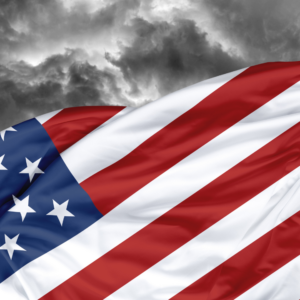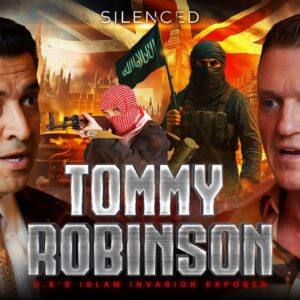Patrick Bet-David sits down with Andrew Callaghan of Channel 5 to discuss citizen journalism, censorship, homelessness, Scientology, and why Gen Z is turning anti-establishment. A raw and wide-ranging conversation packed with stories and sharp insights.
Subscribe to PBD’s YouTube channel today for every episode LIVE or On Demand!
Episode Summary
Andrew Callaghan, known for his boundary-pushing, immersive journalism, reflects candidly on his controversial coverage of Black Lives Matter protests, COVID-era rallies, and chaotic border crossings in a riveting long-form interview. What emerges is a complex portrait of a journalist chasing raw stories in raw places — often at personal risk — while grappling with the broader implications of media, politics, and truth in today’s America.
Fear, Arrests, and the Limits of Field Reporting
Callaghan opens with a moment of retrospective anxiety: “Watching this now, I’m nervous… this was a bad idea.” This line sets the tone for a conversation that revisits harrowing field moments, including an incident involving arrest by Border Patrol during a border-crossing documentary shoot. With a mix of humor and reflection, he acknowledges the fine line between fearless reporting and reckless endangerment, hinting that the adrenaline-fueled decision-making of the moment doesn’t always hold up under scrutiny.
He recounts being trailed by police after being in a vehicle he suspected might have been stolen — a chaotic episode that underlines the unpredictable nature of his documentary process.
The Spark: How Journalism Became a Calling
Callaghan’s passion for journalism was ignited in high school thanks to an inspiring teacher, Calvin Shaw. This early guidance steered him toward frontline storytelling, where he found fulfillment in spotlighting underrepresented perspectives and societal contradictions.
His enthusiasm for cinematic storytelling is evident as he digresses into a detailed appreciation of “The Dark Knight” trilogy, using it as a metaphor for nuanced narratives and moral ambiguity — themes that echo through his own work.
Confronting Power: Scientology, Surveillance, and State Overreach
Callaghan expresses more fear of Scientology than any other group, referencing their “fair game” policy, which he claims allows for harassment and psychological manipulation. He discusses attempts to connect with prominent ex-Scientology figures like Mike Rinder and hints at an ongoing interest in exploring this powerful and secretive organization in depth.
In a broader conversation about surveillance and institutional power, he draws attention to the FBI’s historical infiltration of activist groups, from the Black Panthers to environmental movements, underscoring a deep skepticism of governmental motives.
The Pulse of Protest: COVID-19, BLM, and Controlled Dissent
He revisits the COVID lockdown protests — including the now-deleted “All Gas No Brakes” anti-lockdown video — and the chaotic energy of the 2020 BLM demonstrations. He suggests that some protest organizations may have been quietly guided by city or state contracts to promote nonviolence, questioning the authenticity and spontaneity of modern activism.
This thread continues into a discussion about public discourse being shaped by algorithmic censorship, deplatforming, and the rise of alternative media outlets like Rumble and Parler in response.
Wealth, Inequality, and the Politics of Control
The conversation shifts into deeper philosophical waters as Callaghan and his hosts debate wealth distribution, taxation, and government inefficiency. Callaghan critiques the hoarding of wealth and argues for a more equitable system — though not necessarily through government seizure — and expresses concern about widening inequality. He paints a vivid contrast between sons who inherit wealth and what they do with it, suggesting character trumps capital.
The Political Landscape: Establishment vs. Outsider Energy
The talk touches on Trump, Obama, RFK Jr., and the ongoing battle between establishment politics and outsider candidates. Callaghan anticipates a political “equalizer” moment by 2028, where new voices may break through the traditional party machinery. His anti-establishment stance frames both Trump and RFK Jr. as figures the system can’t fully control — and therefore fears.
Documentary as Long-Form Witness
Near the close, Callaghan shares his preference for long-term documentary projects — “the best documentaries are shot over years,” he says — hinting at a major upcoming project chronicling personal transformation and family intervention. This reinforces his belief that sustained observation yields the richest, most truthful narratives.
Conclusion: The Journalist as Outlaw and Oracle
Andrew Callaghan’s journey is one of immersion, audacity, and relentless curiosity. Whether he’s interviewing street philosophers, crashing rallies, or critiquing billionaires, his work captures the contradictions of American life with both humor and gravity. This conversation reveals a young documentarian grappling not just with his subjects, but with the responsibilities of truth-telling in an increasingly fractured and surveilled world.
Highlights & Standout Moments
1. “Covid’s TRUE Origins” – Trump’s Lab Leak BOMBSHELL Posted On White House Site
Andrew Callahan breaks down how Big Tech censorship during the pandemic backfired, fueling anti-establishment sentiment and elevating Trump’s appeal. He and Patrick Bet-David dive into the lab leak theory, Fauci worship, and how the internet found its voice again post-2022.
2. “Miscavige’s Wife Is MISSING!” – Scientology’s Most BIZARRE Cover-Up That No One Talks About
Andrew Callahan and Patrick Bet-David explore anti-establishment icons, media influence, and controversial groups like Scientology. From Alex Jones to Shelly Miscavige’s disappearance, this deep-dive covers political divides, faith, fear, and fame in a polarized America.
3. “Luigi Magione Is A Martyr” – Andrew Callaghan EXPOSES America’s DARK Obsession With Vigilantes
Andrew Callahan explains why The Dark Knight is his favorite film, then pivots to a raw discussion on Luigi Manion, AI in healthcare, and why some see violence as protest. Patrick challenges the morality behind these takes in one of the podcast’s most intense exchanges.
4. “Divide & Conquer Distraction” – @Channel5YouTube SLAMS Media’s Culture War SCAM
Patrick Bet-David and Andrew Callahan go head-to-head on taxes, billionaires, and why California’s progressive policies may be backfiring. From CNN’s approval polls to personal stories about money, poverty, and governance, this is a masterclass in generational debate on wealth and power.
5. “Elon Is Batman” – @Channel5YouTube’s Andrew Callaghan Reveals DARK Side Of Anti-Musk Protests
Andrew Callahan and Patrick Bet-David dive into the Tesla protest movement, paid activist claims, and the overlap between ideology and influence. From spit-fueled standoffs to data-driven analysis, this clip uncovers the gray areas of modern protest culture and political mobilization.
6. “I Owe Coyotes $5,000” – @Channel5YouTube EXPOSES Cartel Deal Gone WRONG At Mexico Border
Andrew Callahan recalls his wildest and most dangerous moment as a journalist—crossing the U.S.-Mexico border with coyotes during the height of the migrant crisis. From machetes in the jungle to being detained by Border Patrol and stuck watching Marley & Me in solitary—this is one you won’t forget.
7. “Cough In My Face!” – Andrew Callaghan’s INSANE Coverage Of California’s Anti-Vax CHAOS
Andrew Callahan and Patrick Bet-David reflect on America’s first anti-lockdown rallies, COVID-era fear politics, and the social divide of 2020. From Sacramento protests to mainstream media narratives, they unpack how both the left and right sold fear—and why we’re still living in its shadow.
8. “Zuckerberg PANICKED In 2024” – Andrew Callaghan INVESTIGATES The Billionaire Takeover Of Politics
Andrew Callahan and Patrick Bet-David break down Citizens United, the billion-dollar influence game, and Zuckerberg’s regret over COVID-era censorship. With charts, donor data, and political history, they tackle how corporate power—left and right—shapes elections and public perception.
9. “Infiltrated & Taken Down” – @Channel5YouTube EXPOSES FBI’s WAR On Activists
Andrew Callahan and Patrick Bet-David unpack the myth of progressive power in California, the failures of big government, and why many Americans—left and right—are losing trust in institutions. A sharp take on taxes, bureaucracy, and why Trump and Kennedy were both feared by the establishment.
10. “Shouldn’t Have Hopped In The Car!” – Inside Andrew Callaghan’s WILD Ride With The Kia Boys
Andrew Callahan recounts the viral story behind his 18M-view Oblak video, the roots of drill music, and his infamous ride with the Kia Boys. From Chicago’s streets to a stolen car in Connecticut, this raw, chaotic episode dives deep into youth culture, crime, and content creation at its edge.
11. “Assassinated By The Government” – JFK & Trump Face The SAME Deep State ENEMY w/ @DangalTVChannel
Andrew Callahan and Patrick Bet-David break down what it means to be anti-establishment in a world where even rebels become the new norm. From Trump’s outsider status to Gen Z’s values, identity politics, and the media circus around hot-button issues—this is raw, generational truth.
12. “I Want A Religious Experience” – Andrew Callaghan OPENS UP On Faith, Death & Purpose
Andrew Callahan opens up about faith, death, and the search for meaning with Patrick Bet-David. From childhood beliefs to losing a puppy, the conversation turns deep. They explore religion, Iran, dogs in heaven, and the evolving journey of finding your spiritual identity.
13. “Socialism ALWAYS Fails” – Andrew Callaghan Confronts HARD TRUTHS About Power, Greed & Government
Andrew Callaghan and Patrick Bet-David go deep on Iran, freedom, authoritarianism, and how personal history shapes political views. From the Islamic Revolution to modern American polarization, this is a generational bridge of experience and ideology you don’t want to miss.


















Add comment